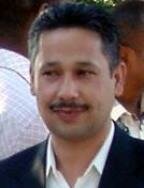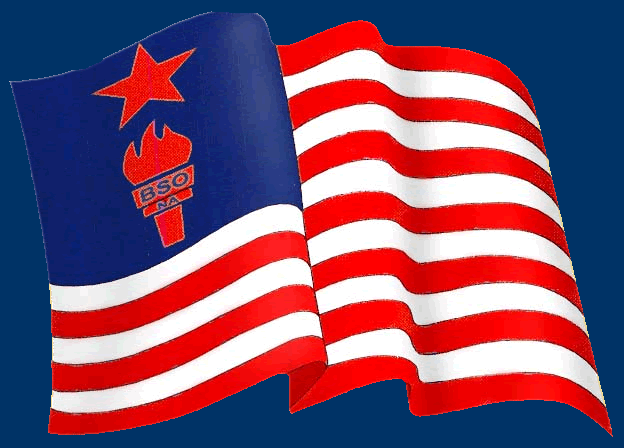U.S. Revokes Visa Of Pakistani Senator
Musharraf Critic Was to Be State Dept. Guest
By Shankar Vedantam
Washington Post Staff Writer
Saturday, March 25, 2006; Page A03
The Bush administration has withdrawn an invitation to a Pakistani lawmaker and
a prominent critic of President Pervez Musharraf who was to arrive in the United
Musharraf Critic Was to Be State Dept. Guest
By Shankar Vedantam
Washington Post Staff Writer
Saturday, March 25, 2006; Page A03
The Bush administration has withdrawn an invitation to a Pakistani lawmaker and
a prominent critic of President Pervez Musharraf who was to arrive in the United

States today as a guest of the State Department, setting off charges that the action came at the behest of the
Pakistani government. Sana Ullah Baloch, who had been invited by the State Department last year and issued
a visa, was told recently by the U.S. Embassy in Islamabad that he could not attend a State Department-
sponsored program on accountability in government and business and that a visa he had already received had
been revoked. American officials first told Baloch in a letter sent March 13 that they had taken the action
because of "a recent withdrawal in funding which made it necessary for us to scale back the program."
In an interview Wednesday, State Department spokeswoman Nancy Beck said the problem was not
funding but rather new information that was received after Baloch had been approved that "led us to
believe he was not eligible for a visa." She declined to elaborate.
The incident has drawn sharp parallels with the case of Mukhtar Mai, a woman gang-raped in 2002 by a village
council in Pakistan, who was prevented by the Pakistani government from traveling to the United States last
summer to publicize her story. The government later relented.
The changing explanations fueled suspicion among some South Asia experts in Washington that Pakistan, a
U.S. ally in the hunt for al-Qaeda leaders, asked the Bush administration not to permit Baloch to come to the
United States. Baloch has been highly critical of Musharraf's handling of an intensifying conflict in Baluchistan,
a restive province that Baloch represents in the national parliament.
"What is truly outrageous about his situation is this was a U.S.-government-sponsored trip," said Michael
McFaul, a senior fellow at the Hoover Institution in Washington, who spent three weeks with Baloch at a
meeting at Stanford University aimed at promoting democracy and human rights. "Since when do we let other
countries decide whom we should invite to our country?"
"We are all embarrassed because we all suspect the same thing, but so far the questions we have asked
the administration remain unanswered," said Frederic Grare, a scholar at the Carnegie Endowment for
International Peace, which was forced to cancel next week's event for Baloch.
Amnesty International's advocacy director for Asia, T. Kumar, said the group would bring the issue to the
attention of Congress: "This is a coverup. This is a war on terror issue, and they need Pakistan."
Baloch's allies note that they have no direct evidence of their claims, and the Pakistani government and the
State Department deny that Pakistan was involved.Tariq Azim Khan, one of Baloch's fellow senators and a
spokesman for the Pakistani government, joked that "it is surprising to note that Pakistan has that much sway
with the State Department and the American Embassy in Islamabad."
Baloch was welcome to express his views anywhere, Khan said, adding that the Pakistani government itself
had included the critic in many interparliamentary delegations. Khan described the unrest in Baluchistan as
the work of a tiny but vocal minority, led by people such as Baloch, who Khan charged was upset because
traditional roles of patronage were being sidelined by development programs.
Marvin Weinbaum, a former State Department analyst for Afghanistan who now works for the Middle East
Institute in Washington, said the department's intelligence analysts may have learned something problematic
about Baloch. But Selig Harrison, author of "In Afghanistan's Shadow," a book on Baluch Nationalism, said
that absent evidence, "one would discount that as simply a cover story."
In an interview via cellphone, Baloch said that his province -- the largest in Pakistan -- was being exploited
for its natural resources, even as the region was starved of development funds. The province borders Iran
and Afghanistan and is strategically important to oil-shipping lanes. Baloch said locals want more
authority but were being undermined by the Pakistani government's leverage of radical Islam in the liberal-
minded region.
"They don't want to allow any Baluch political activist to get in touch with the international community
regarding the human rights violations in Baluchistan," he said, adding that about 600 people had been
killed in recent months.
http://www.washingtonpost.com/wp-dyn/content/article/2006/03/24/AR2006032401723.html?sub=new
Related links:
Pakistani government. Sana Ullah Baloch, who had been invited by the State Department last year and issued
a visa, was told recently by the U.S. Embassy in Islamabad that he could not attend a State Department-
sponsored program on accountability in government and business and that a visa he had already received had
been revoked. American officials first told Baloch in a letter sent March 13 that they had taken the action
because of "a recent withdrawal in funding which made it necessary for us to scale back the program."
In an interview Wednesday, State Department spokeswoman Nancy Beck said the problem was not
funding but rather new information that was received after Baloch had been approved that "led us to
believe he was not eligible for a visa." She declined to elaborate.
The incident has drawn sharp parallels with the case of Mukhtar Mai, a woman gang-raped in 2002 by a village
council in Pakistan, who was prevented by the Pakistani government from traveling to the United States last
summer to publicize her story. The government later relented.
The changing explanations fueled suspicion among some South Asia experts in Washington that Pakistan, a
U.S. ally in the hunt for al-Qaeda leaders, asked the Bush administration not to permit Baloch to come to the
United States. Baloch has been highly critical of Musharraf's handling of an intensifying conflict in Baluchistan,
a restive province that Baloch represents in the national parliament.
"What is truly outrageous about his situation is this was a U.S.-government-sponsored trip," said Michael
McFaul, a senior fellow at the Hoover Institution in Washington, who spent three weeks with Baloch at a
meeting at Stanford University aimed at promoting democracy and human rights. "Since when do we let other
countries decide whom we should invite to our country?"
"We are all embarrassed because we all suspect the same thing, but so far the questions we have asked
the administration remain unanswered," said Frederic Grare, a scholar at the Carnegie Endowment for
International Peace, which was forced to cancel next week's event for Baloch.
Amnesty International's advocacy director for Asia, T. Kumar, said the group would bring the issue to the
attention of Congress: "This is a coverup. This is a war on terror issue, and they need Pakistan."
Baloch's allies note that they have no direct evidence of their claims, and the Pakistani government and the
State Department deny that Pakistan was involved.Tariq Azim Khan, one of Baloch's fellow senators and a
spokesman for the Pakistani government, joked that "it is surprising to note that Pakistan has that much sway
with the State Department and the American Embassy in Islamabad."
Baloch was welcome to express his views anywhere, Khan said, adding that the Pakistani government itself
had included the critic in many interparliamentary delegations. Khan described the unrest in Baluchistan as
the work of a tiny but vocal minority, led by people such as Baloch, who Khan charged was upset because
traditional roles of patronage were being sidelined by development programs.
Marvin Weinbaum, a former State Department analyst for Afghanistan who now works for the Middle East
Institute in Washington, said the department's intelligence analysts may have learned something problematic
about Baloch. But Selig Harrison, author of "In Afghanistan's Shadow," a book on Baluch Nationalism, said
that absent evidence, "one would discount that as simply a cover story."
In an interview via cellphone, Baloch said that his province -- the largest in Pakistan -- was being exploited
for its natural resources, even as the region was starved of development funds. The province borders Iran
and Afghanistan and is strategically important to oil-shipping lanes. Baloch said locals want more
authority but were being undermined by the Pakistani government's leverage of radical Islam in the liberal-
minded region.
"They don't want to allow any Baluch political activist to get in touch with the international community
regarding the human rights violations in Baluchistan," he said, adding that about 600 people had been
killed in recent months.
http://www.washingtonpost.com/wp-dyn/content/article/2006/03/24/AR2006032401723.html?sub=new
Related links:
Baloch Society Of North America (BSO_NA) is Non-Profit Organization, working to unite and Organize all Baloch in North America, to expose the Occupation and Oppressive policies of Pakistani and Iranian Governments against Baloch people and our Baloch land (Balochistan), and to bring their Human Rights Violations in Balochistan into the world’s Notice. |

